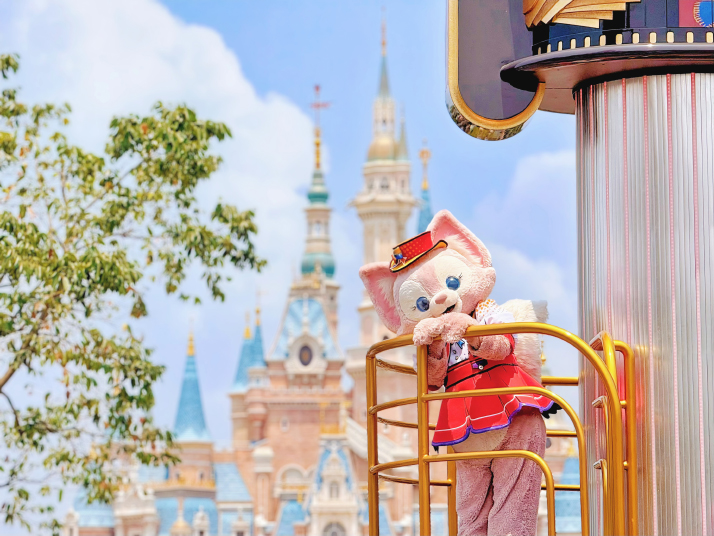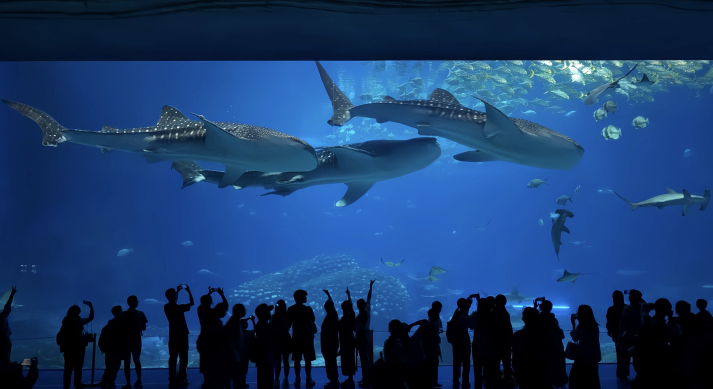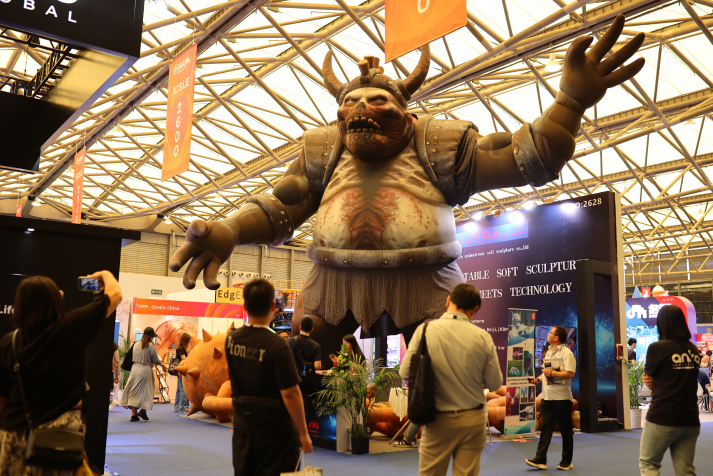| China |
| How China's theme parks power joy and global cooperation | |
|
|
|
Despite temperatures soaring past 37 degrees Celsius on July 5, Shanghai's LEGOLAND® welcomed enthusiastic crowds on its first day of official operation. Within the first hour of its opening, more than 7,500 visitors entered, and rides like the LEGO Great Flight were already seeing long queues. This park, China's first LEGOLAND®, located in the city's Jinshan District, injects fresh energy into China's booming theme park economy.
Local vs. global Today, theme parks have become go-to destinations for tourists in China, alongside traditional tourism destinations. Their all-in-one model, combining scenic areas, hotels, live performances and shopping streets, offers a comprehensive vacation experience. According to the 2024 China Tourism and Leisure Vacation Market New Trends Development Report, in the first half of 2024, various resorts, theme parks and resort hotels developed rapidly, with the online transaction volume of theme parks increasing by 7.9 percent year on year. Shanghai Disney Resort, Universal Beijing Resort, Zhuhai Chimelong Ocean Kingdom, Harbin Ice and Snow World and Qingdao Polar Ocean, favored by consumers, had the highest transaction volume. The Institute for Theme Park Studies in China released the 2024 Evaluation of Theme Park Competitiveness on November 18, 2024, ranking mega and large-scale theme parks in the Chinese mainland based on their investment scale, market impact and business performance. The Shanghai Disney and Universal Beijing resorts ranked first and second with scores of 100 and 89.86 (out of 100), respectively. Zhuhai Chimelong Ocean Kingdom ranked third with a score of 41. In 2023, after three years of COVID-19 restrictions, these large parks, defined as occupying at least 40 hectares or having investments of 1.5 billion yuan ($213 million) or more, received 130 million visitors and generated 30.4 billion yuan ($4.3 billion) in revenue, increasing by 71.8 percent and 97.9 percent, respectively, from the previous year, when the COVID-19 pandemic was still raging. Lin Huanjie, Director of the Institute for Theme Park Studies in China, told Beijing Review that the Chinese mainland currently has 90 large and mega-sized theme parks, but only three are international brands: Shanghai Disney Resort, Universal Beijing Resort and LEGOLAND® Shanghai. Though few in number, these international parks attract massive visitor traffic. On July 8 alone, Shanghai Disneyland recorded a real-time visitor count of 63,000.  LinaBell, a new character in the Disney toyline Duffy and Friends, performs in a parade at Shanghai Disney Resort on May 26 (Feng Shiting)
With the rapid development of China's theme parks, one question arises: Who holds the competitive edge, international brands or domestic parks? International edge One edge of international theme parks is intellectual property (IP). Taking Shanghai Disney Resort as an example, it boasts over 30 classic Disney IPs, from early icons like Mickey Mouse and Snow White to modern successes such as the Frozen and Zootopia media franchises. These cultural IPs are turned into interactive, immersive attractions using special effects and advanced virtual reality technology, offering a level of experience unmatched by most domestic parks. Disney's IPs foster emotional bonds with visitors, particularly younger audiences, who are willing to pay for nostalgia. "It's the immersive storytelling that leverages IPs to create a bond between characters and visitors. Once you have that bond, you want to go back again and again. That's where international parks truly excel," Jack Chan, Executive Director and Vice President of the International Association of Amusement Parks and Attractions (IAAPA) Asia-Pacific, told Beijing Review. Another strength is location. According to Lin, international theme parks are usually built in densely populated, economically developed cities with excellent transport networks, such as Shanghai and Beijing. With China's expanded visa-free policies, visitors from the Republic of Korea, Japan and countries in Southeast Asia are flocking to Shanghai Disney Resort and purchasing annual passes. However, domestic parks are also finding their own paths to success. Zhuhai Chimelong Ocean Kingdom focuses on marine life as its core theme, offering world-class facilities and a rich variety of animal exhibits, from whale sharks and belugas to dolphins and penguins. The park also provides integrated services, including exhibitions, shows, rides, dining and shopping, enriching visitor choices.  The Whale Shark Aquarium at Zhuhai Chimelong Ocean Kingdom in Guangdong Province on November 13, 2024 (Cao Kunpeng)
Regional culture is another competitive asset. Fantawild Dino Kingdom in Zigong City, Sichuan Province, opened in June 2022, leveraging the city's identity as the "home of dinosaurs" to quickly climb to the 10th spot in national competitiveness rankings. Looking ahead, Lin suggests that new theme parks should differentiate themselves through unique cultural positioning. Southern and southwestern regions could focus on ethnic culture and natural landscape, while the northeast could develop snow-and-ice-themed attractions. Existing parks can also learn from Shanghai Disney Resort by refreshing one third of their offerings each year with seasonal events and parades to maintain novelty and loyalty. Innovation in technology, flexible pricing and service quality will be key drivers of future growth. As international and domestic theme parks compete for market share, the real winners are the visitors, who now enjoy an ever-growing array of choices. Zhou Yiming, the mother of a three-year-old boy, shared, "We've been to Disneyland, LEGOLAND® and local water parks. Each has its own charm. We enjoy them all. Today's theme parks incorporate local culture, enabling us to experience diverse styles in one destination."  Visitor Zhou Yiming at LEGOLAND® Shanghai Resort with her family members during its trial operation on June 15 (Zhou Yiming)
United for fun Despite fierce competition, cooperation between Chinese and international players in the theme park and entertainment industry is on the rise. On June 30-July 3, Shanghai hosted the IAAPA Expo Asia 2025. The event drew 5,651 buyers and 7,093 visitors from 85 countries and regions, with over 350 global companies showcasing the latest industry trends and products.  A giant animatronic creature at the IAAPA Expo Asia 2025 in Shanghai on July 2 (COURTESY PHOTO)
"China has made big strides over the last few decades. It's hard to find any equipment these days that doesn't involve Chinese suppliers. Now is a perfect moment for China and the world to collaborate and develop new experiences together," Massimiliano Freddi, Chair of the IAAPA Board of Directors (2025), said. Chinese exhibitors impressed buyers with their high-quality design, reliable products and full-service offerings. One crowd favorite was the animatronic dinosaurs displayed by Zigong Hualong Science and Technology Co. Ltd. Founded in 1996, Hualong specializes in lifelike dinosaurs, animals, and lantern displays. Since 2000, its business has expanded to over 80 countries and regions. "Our appeal lies not only in our product quality but also in our full-chain service, from initial design and evaluation to production, logistics, installation and after-sales," Robert Wang, Vice President of Hualong, said. "Some Russian parks are likely to sign contracts with Chinese firms from this exhibition. We don't have many companies in Russia capable of producing high-end equipment, so this cooperation is promising," Denis Tsukanov, Director of the Association of Parks of Russia, stated. China's massive domestic market remains attractive to international players. According to the Ministry of Culture and Tourism, in the first half of 2024, Chinese travelers made 5.615 billion domestic trips, spending 5.75 trillion yuan ($807.3 billion)—increases of 14.8 percent and 17.1 percent year on year, respectively. Tony Kennedy, one of the founders of international freight forwarder UCARGO, shared his views at the expo: "I'm expanding my network here. Understanding the market and working with Chinese partners is vital. Learning local customs and culture helps build better relationships." "The theme park industry creates laughter and fun, and fun knows no boundaries. There's room for international and local parks to collaborate and grow together. As the market is getting bigger, everyone will be happier," said Chan. Copyedited by Elsbeth van Paridon Comments to wangruohan@cicgamericas.com |
|
||||||||||||||||||||||||||||
|